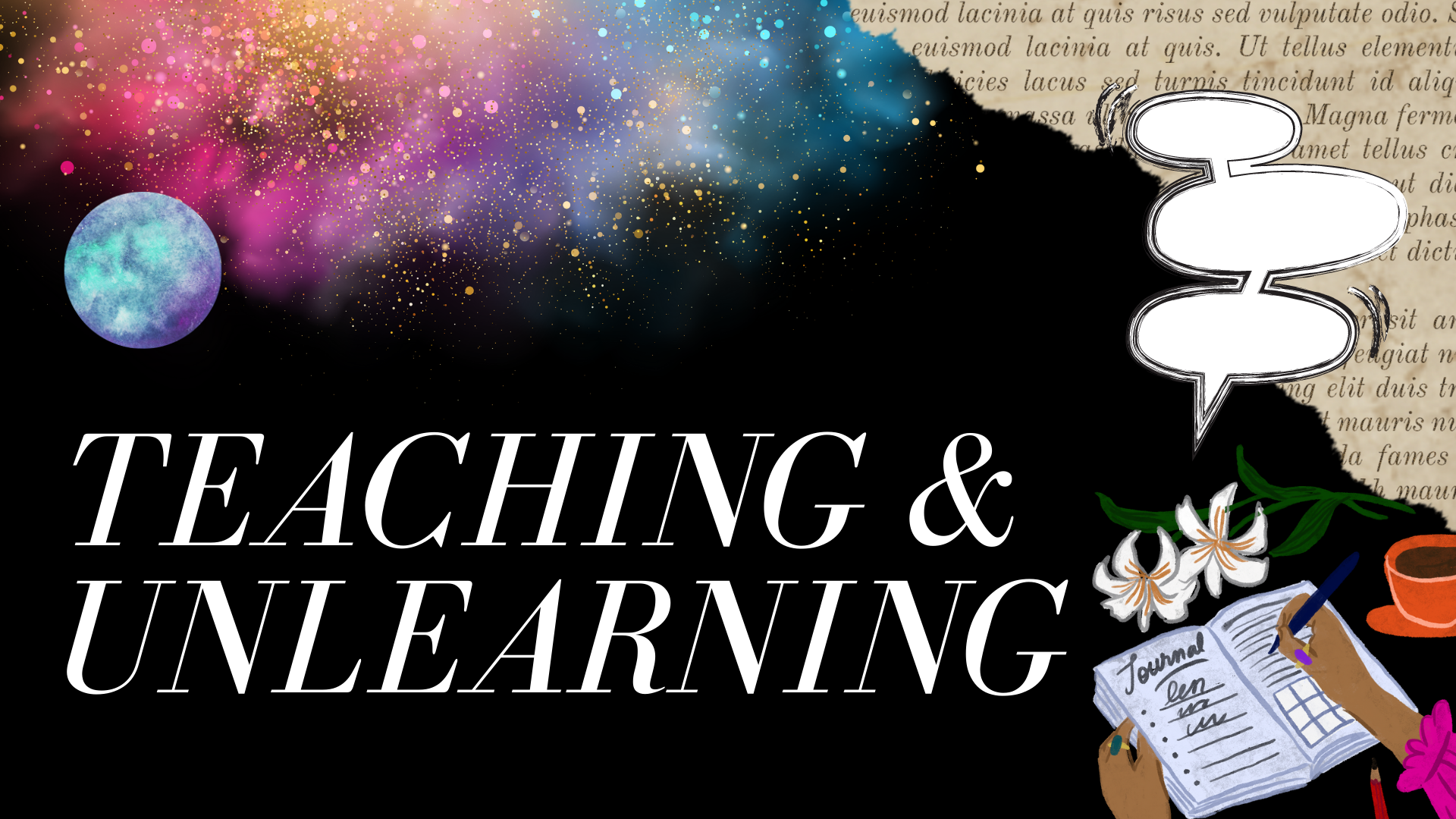
Teaching and Unlearning
The premise of this theme is that decolonial praxis is necessarily a task of asking ourselves what and how we have learned, and what and how we in turn teach within and outside the classroom. This area challenges us to reflect on our colonial schooling and how decolonial perspectives activate unlearning practices that disrupt the “certainty of fixed knowledge, predetermined outcomes, and guaranteed solutions” and place more focus on dynamism and disparate forms of engagement (Stein et al., 2020, p. 54). We invite you to consider these questions: What possibilities of unlearning open up in teaching/learning environments when we collectively notice and disengage from colonial ways of knowing, being, and feeling in the colonial classroom? How can we support others to engage in unlearning and decolonial praxis?
The Concept of the Colonial Jacket
This short, 10 minute video is a great place to begin: Andreotti, V. (2016). Shouldering our colonial backpack: A Different Vision of Education.
We build off of this idea of the colonial backpack in our collective by talking about our colonial jackets.
Harry describes our colonial jackets.
Unifier describes some of the shifts, connections, questions, and stories that have come as a result of thinking about our colonial jackets.
Activity
Try writing a self-introduction to take off your colonial jacket. Consider:
You as a person who carries many identities (eg. What is the journey with your various identities?)
You as a person in relation to community, loved ones, a friend (eg. Who is your community? How has this community grown/changed over time?)
Who are the people/mentor/family/ friend that are in your mind you bring with you?
Visual and Reflective Writing & Journaling
Why critical self-reflection? Why journaling & dialogue?
The goal of reflection is to unpack and engage tangible, take-away tools to begin and continue the personal journey and inner work of decolonial praxis. The goal of dialogue is to connect with each other in an embodied form of practice that puts a premium on humanity and relationality.
“embodied reflexivity” → making reflection a method and a practice
Liv shares their unlearning process and invites us to reflect on our own.
Engage more
Utitofon encourages us to make learning and un/learning a part of our daily lives.
Baldwin, J. (2008). A Talk to Teachers.
Lentin, A. (2022). Politics, Power & Resistance. The Coloniality of Power.
Morris, A. (2019). What is Settler-Colonialism? Teaching Tolerance.
Tuck, E. (2013). Settler Colonialism: An Overview. Prezi.